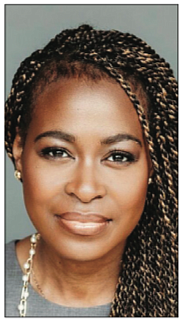Living and learning as classrooms dominate the culture wars in America, by Errin Haines
7/20/2023, 6 p.m.
School’s out for the summer, but the culture wars around education aren’t taking a break. This month, a pair of convenings again showed how the issue is breaking down.
Much of the media attention focused on the Moms for Liberty conference in Philadelphia over the July Fourth holiday weekend.
The right-wing group has gained increased attention in recent months as it has led the effort to ban books they deem inappropriate, often dealing with topics of race, gender, sexuality or history.
But I was also interested in another gathering happening that same weekend down in Florida, arguably the epicenter of the education fight. Thousands of teachers were in Orlando for the National Education Association’s annual meeting. The group is the country’s largest teacher’s union and a powerful voting bloc: Three in four teachers are women, and 1 in 100 Americans is an NEA member.
The climate for educators could not be more fraught. “Parents’ rights” became a rallying cry during the pandemic, and Republicans, led by former President Donald Trump, have actively opposed teaching a fuller, more inclusive version of history that they say harms White children in particular. The GOP also is targeting LGBTQ+ youths, from classrooms to locker rooms, arguing that progressive policies have gone too far.
And headed into the NEA conference, the Supreme Court handed down a pair of rulings on student loan debt and affirmative action that could affect many of the group’s 3 million members. According to the NEA, nearly half of their educators have student loans, and more than half of them still carry a balance averaging nearly $60,000. The future of college campuses — potentially affecting both students and professors — also hangs in the balance.
Education is perennially a top issue for voters, but headed into 2024, I’m already watching to see how this political priority will play out differently over the next year.
I spoke with NEA President Becky Pringle, a former middle school science teacher, mother and grandmother, about the stakes of our current moment and how she’s thinking about her role in a consequential election year.
“Public education is the foundation of our democracy,” Ms. Pringle said. “Any attempt to destroy it or diminish it or dismantle it or do anything that discourages people about the promise of it ... that’s unacceptable.”
Florida already was on the calendar for the NEA long before Gov. Ron DeSantis announced he was running for president on the heels of a resounding reelection victory. As governor, he has led a legislative agenda targeting LGBTQ+ rights, access to abortion and the teaching of history.
As a result, groups such as the NAACP issued travel advisories warning people not to go to Florida. Still, Ms. Pringle told me the moment felt urgent for her members in the state and across the country.
“Florida was on our list to go to, but then, you know, Ron DeSantis, and the confluence of issues, laws that were passed, rhetoric, attacks, all of the things that started happening
last year, we had to look at that and make some decisions,” said Ms. Pringle, the first Black woman to lead the NEA in two decades. “It was very personal for me, in addition to all of our delegates being safe ... I was concerned. We talked about whether or not we would go or we wouldn’t go, either in protest or not, just going into the belly of the beast.”
After meeting with educators in Florida after last year’s midterm election, Ms. Pringle said the message was clear: “Don’t leave us. We’re here, our kids are here, educators are here, and we need our union to stand with us, because the attacks won’t stop.”
The writer is editor-at-large at the 19th. To read her entire commentary, visit https://19thnews.org/author/errin-haines/






